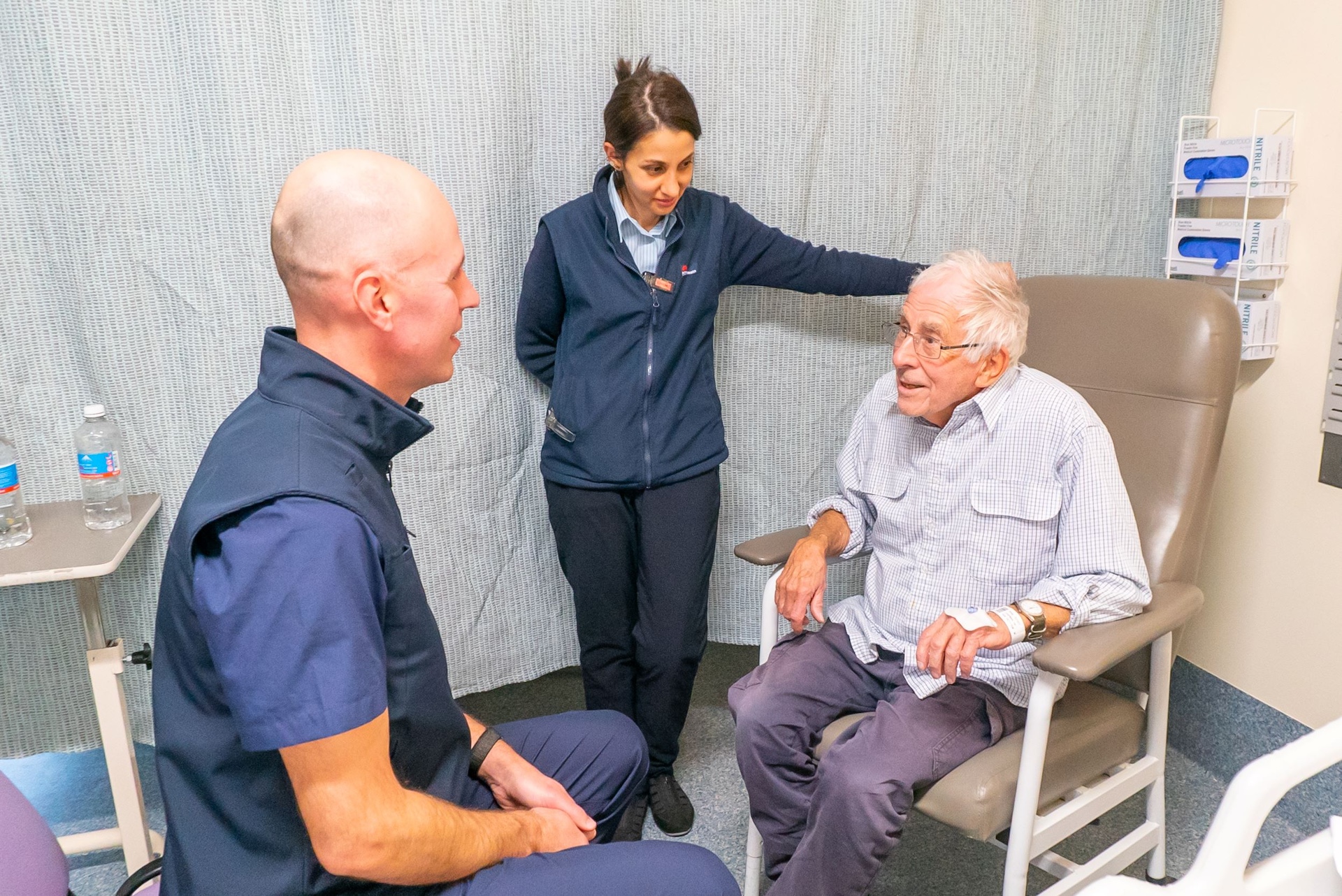
Know the signs of stroke
RPA’s Stroke Nurses want everyone to know the signs of stroke for NSW Stroke Awareness Week.

A stroke is a life changing event and adjusting to life after experiencing a stroke can be a challenging path.
This year for NSW Stroke Awareness Week the Stroke Unit from RPA’s Neurosciences Ward are reminding people to know the B.E. F.A.S.T. signs of stroke and to share information.
B.E. F.A.S.T. to recognise the most common signs of stroke:
Balance. Have they experienced a loss of balance or coordination issues?
Eyes. Do they have blurred or double vision or loss of vision?
Face. Check their face. Has their mouth drooped?
Arms. Can they lift both arms?
Speech. Is their speech slurred? Do they understand you?
Time is critical. If you see any of these signs call 000 straight away.
“As friends and family, we might be the ones who see something or find somebody who is experiencing a stroke. It’s that fast,” said Steve Walker, registered nurse and Clinical Trials Coordinator.
In his role, Steve works with clinicians, researchers, and sponsors to offer patients’ access to clinical trials. He monitors their progress throughout their time in the hospital and when they go home.
“Looking after somebody who's just had a stroke is very eye opening. They can't speak necessarily; they can't move one side of the body. It's a big impact on them and their families and community,” he said.
Maryam Sharifian Alborzi, Clinical Nurse Consultant, has been part of the hospital for nine years and agrees that the immediate effects of a stroke need to be understood to help navigate what can be a complicated recovery process.
“It's a sudden thing that just happens. It’s a life-changing event. So, families are quite worried and stressed because they don’t know what to expect,” she said.
“Recognising the signs means getting early access to the Stroke Unit, therapies, and secondary prevention, which will help their journey so that they get better faster and prevent the situation from getting worse.”
Nurses like Steve and Maryam are part of a multidisciplinary care team, which includes speech pathologists, physiotherapists, and pharmacists. They play an important role in looking after patients coordinating their care and are also key advocates in a patient’s stroke journey.
They also help families understand what is happening.
“Nurses can have a big impact. We provide a simpler and easier way of understanding where the treatment is going and where this is heading,” Maryam said.
“Nurses are powerful, and nursing research is powerful. There is previous research that shows certain nursing actions can have a 16 per cent reduction in death and disability, and that’s better than medical treatments on their own,” added Steve.
The Stroke Unit at RPA treats patients from across New South Wales, with a strong commitment to ongoing research and comprehensive investigation and outreach rehabilitation.